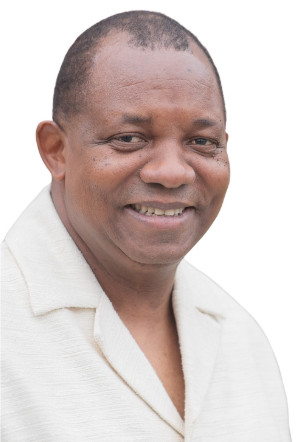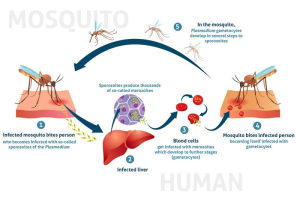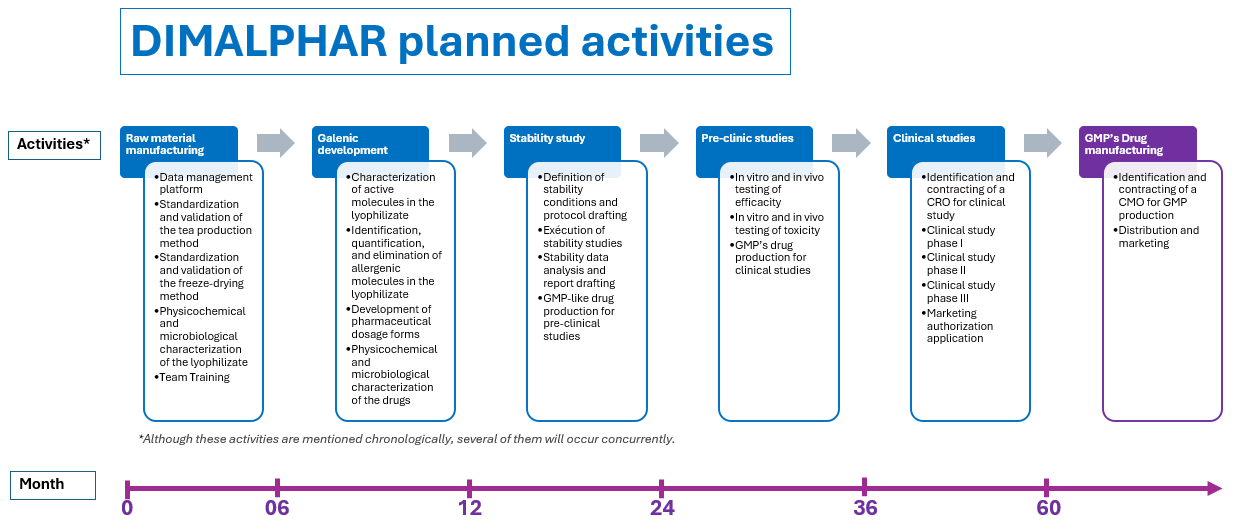The development of a new drug is a true scientific odyssey, marked by rigorous steps, complex challenges, and strict regulations.…
cases of malaria in Africa in 2023
deaths with 95% in Africa
yearly economic impact in Africa
african countries are affected

Who We Are.
Together against Malaria
Malaria is a parasitic disease caused by Plasmodium. In 2023 alone, it affected 246 million people and claimed 600,000 lives worldwide, with Africa bearing most of the burden. Gotesse ASBL is a non-profit organization committed to eradicating malaria, working in close collaboration with Professor Jacob Souopgui.
Through the Dimalphar Project, led by Professor Souopgui, we are supporting the development of a groundbreaking antimalarial treatment derived from Artemisia afra, a traditional African medicinal plant. This new therapy is designed not only to target parasites resistant and sensitive to ACTs but also to eliminate hidden human reservoirs that drive ongoing transmission.
At Gotesse ASBL, our mission is to mobilize financial resources to move this innovation forward. Every contribution brings us closer to saving lives and giving millions of vulnerable people a chance at a healthier future
Your support makes this possible. Every euro fuels research. Every donation saves lives. Every gift brings us closer to a future free from malaria.
Fight malaria. Save lives. Give hope. Donate today!

Professor of Internal Medicine and Infectious Diseases
GotesseASBL Chairman
Support Dimalphar, donate: 13.000.000€
*Stripe accepts credit and debit card payments
Our Values.
We can join hands to make impossible, possible
Even cents count, donate
We take a wider role in civil society
Struggle against malaria
Our Blog.
Latest News & Events
Silent Reservoirs: The Hidden Challenge of Malaria
Malaria is caused by parasites of the Plasmodium genus, transmitted to humans through the bite of infected female Anopheles mosquitoes. The infection cycle involves…
Economic impact of malaria in Africa.
The economic impact of malaria in Africa is considerable and multidimensional. Analysis of recent data shows that this economic impact…
FREQUENTLY ASKED QUESTIONS
What is Malaria?
 Malaria is a potentially fatal infectious disease transmitted to humans by the bites of certain species of mosquito. It occurs mainly in tropical countries. It is a preventable and curable disease.
Malaria is a potentially fatal infectious disease transmitted to humans by the bites of certain species of mosquito. It occurs mainly in tropical countries. It is a preventable and curable disease.
The infection is caused by a parasite Plasmodium and is not transmitted from person to person.
Symptoms can be mild or life-threatening. Mild symptoms include fever, chills and headaches. Severe symptoms include fatigue, confusion, convulsions and difficulty breathing.
Infants, children under five, pregnant women and girls, travelers and people living with HIV or AIDS are at greater risk of severe infection.
What is silent reservoirs or asymptomatic malaria?
Asymptomatic carriers show no signs of illness but harbor the parasite in their blood, enabling mosquitoes to become reinfected and sustain transmission, particularly during the rainy season. These silent infections can persist for months or even years. Asymptomatic malaria is common in highly endemic regions, where individuals often develop partial immunity and become chronic carriers. However, those who leave endemic areas for extended periods may lose this natural immunity and become susceptible again.
How is malaria treated?
Malaria is treated with medicines called antimalarial drugs that kill the parasites causing the illness. The most common treatment is a combination of medicines called artemisinin-based combination therapy (ACT), which works well in many places. Sometimes, other drugs are used depending on the type of malaria and how serious the infection is. Severe cases of malaria need strong treatment right away, often with medicine given through a drip in the hospital. It’s important to start treatment quickly to get better and stop the illness from getting worse.
Name some type of Antimalarial drugs
Antimalarial drugs are medicines that kill the tiny germs (parasites) that cause malaria. Here are the main kinds explained very simply:
Artemisinin-based medicines (ACTs): These are the most used and work fast to kill the germs.
Chloroquine: An older medicine that still works well in some places.
Quinine: Used when malaria is very serious and needs strong medicine.
Atovaquone-proguanil: A pill used to stop or treat malaria, especially when traveling.
Primaquine: Used to stop malaria from coming back after treatment.
Doctors choose which medicine to use based on how bad the malaria is and where the person lives. Taking the right medicine quickly helps people get better fast.
Is there a need for new antimalarial drug since there are already plenty of them?
In 2023 alone, it affected 246 million people and claimed 600,000 lives. This indicates that despite everything that exists, there is still much to be done.
Many people drink Artemisia infusion to treat malaria. What improvements or changes would a new drug made from Artemisia bring?
The infusions that are currently used cannot be considered as medicines. There is no clear dosage that takes into account the specificity of the patient, ….
Address
Rue rené rubay, 45 - 5032 Gembloux- Belgium
Phone
+32.498 08 06 95
contact@gotesseasbl.org


